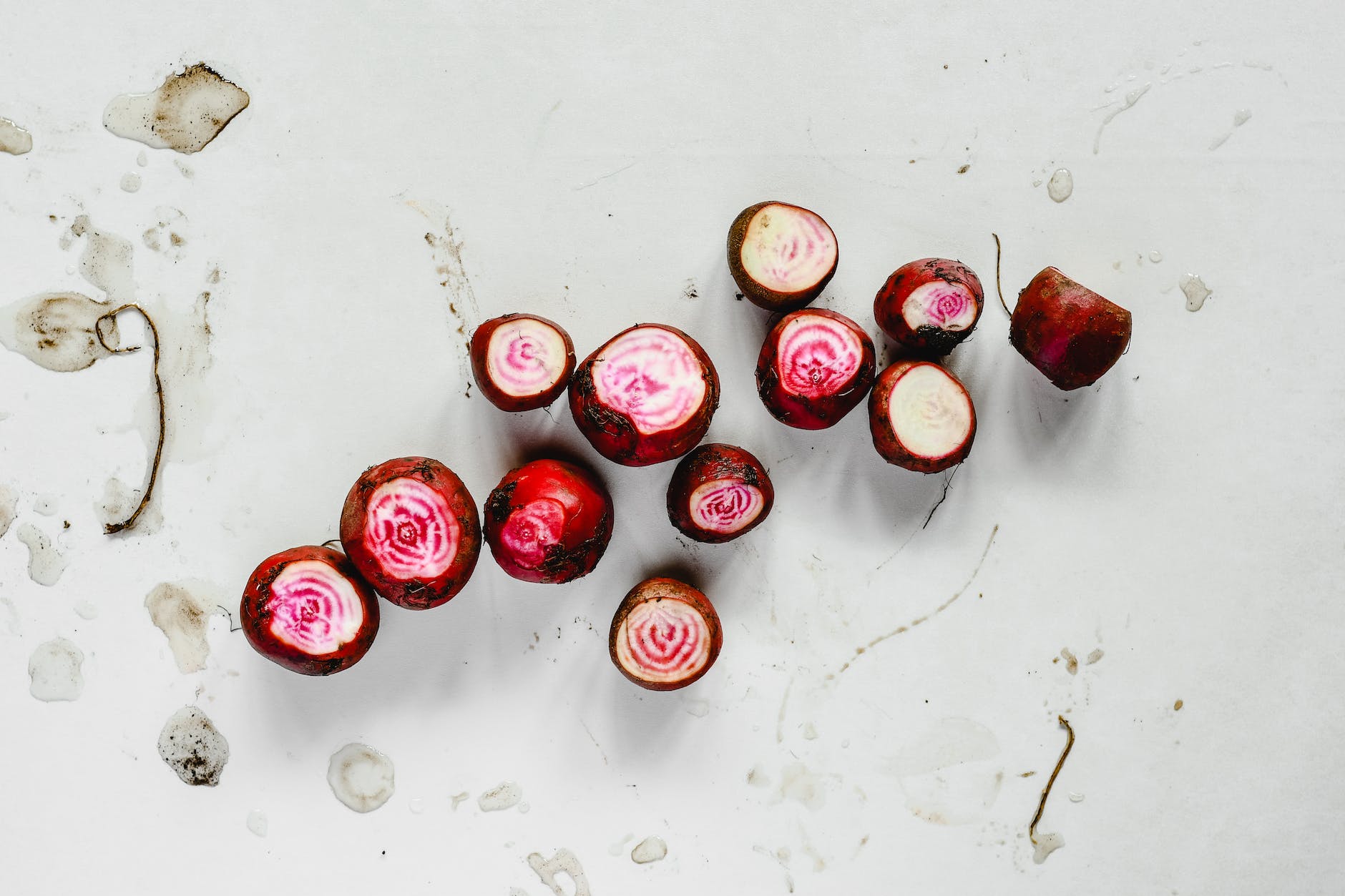Beetroot also known as beet has become increasingly popular in recent years due to its many health benefits and today we will discuss about Beetroot for Heart Health. It often overlooked as just a colorful vegetable but instead it is packed with nutrients that can boost heart health in various ways. Keep reading to learn more about how incorporating it into your diet can keep your heart strong and healthy.
Benefits of Beetroot for Heart Health
Potent Antioxidants
One of the biggest advantages to eating beetroot regularly is its high antioxidant content. It contains antioxidants like betalains, vitamin C, and polyphenols. Antioxidants are important for heart health because they protect cells from oxidative stress and inflammation. Oxidative stress occurs when there is an imbalance between free radicals and antioxidants in the body. This can lead to cell and tissue damage over time, including within the cardiovascular system. The antioxidants in beetroot help neutralize free radicals and reduce systemic inflammation, acting as a defense for heart health.
Also Read : Do you want to stay Healthy Forever then Read this
Blood Pressure Management
High blood pressure is one of the major risk factors for heart disease and stroke. The antioxidants and nitrates found in beetroot have been shown to help improve blood pressure levels, especially systolic blood pressure. Nitrates turn into nitric oxide in the body, which helps blood vessels dilate and allows them to function optimally. Studies have found daily intake of this juice can reduce systolic blood pressure in the range of 4-10 mmHg. Reducing blood pressure to a healthy range takes strain off the cardiovascular system.
Improves Blood Flow
By widening blood vessels and enhancing circulation, beetroot makes it easier for the heart to pump blood throughout the body. The nitric oxide produced from the nitrates in beetroots play a big role in these vascular benefits. Improved blood flow delivers more oxygen and nutrients vital to heart health. It also improves exercise performance and stamina. Increased blood flow is especially important for supporting heart health as we age.
Anti-Inflammatory Effects
Inflammation is at the root of many chronic diseases, including atherosclerosis. Beetroot contains anti-inflammatory compounds called betalains which help inhibit the action of pro-inflammatory messaging molecules. Less inflammation means lower risk of plaque buildup inside arteries and other cardiovascular damage. The vitamin C and polyphenols in it also exhibit anti-inflammatory effects to protect the heart.
Boosts Nitric Oxide Levels
As mentioned earlier, beetroot is a great source of inorganic nitrates that get converted to nitric oxide in the body. Nitric oxide is a vasodilator that relaxes and widens blood vessels to increase circulation. Sufficient levels of nitric oxide are essential for cardiovascular health, as it facilitates better blood flow, decreases plaque buildup, and curbs inflammation. The natural nitrates found in it and its juice make it simpler to raise nitric oxide levels through diet.
Supports Healthy Cholesterol
High cholesterol, especially chronically elevated LDL cholesterol, harms heart health by promoting plaque accumulation in arteries. The unique antioxidants called betalains found in beetroot have been shown to help reduce LDL cholesterol oxidation. Oxidized LDL is more likely to stick to artery walls and form plaque. Beetroot’s betalains protect LDL particles from free radical damage. The folate in it also helps lower homocysteine, an inflammatory marker that is linked to heart disease.
Also Read : If you want to Invest in Crypto then you have remember these…..
Rich in Vitamins and Minerals
In addition to antioxidants and nitrates, it contains many other vitamins and minerals that benefit the cardiovascular system and therefore there are many benefits of beetroot for Heart Health including:
- Potassium – Helps control blood pressure and counteracts sodium. Many people do not get enough potassium.
- Magnesium – Helps regulate heartbeat rhythms and improves blood flow. Also aids blood pressure.
- Vitamin C – Powerful antioxidant that combats inflammation and protects cells from free radical damage.
- Folate – Helps improve blood flow and lowers homocysteine levels, reducing heart disease risk.
- Iron – Oxygenates the blood to improve circulation.
This unique combination of heart-healthy nutrients makes beetroots an excellent addition to any heart-conscious diet.
Adaptable and Easy to Add to Diet
The great thing about beets is their versatility. You can roast them, blend them into dips and smoothies, turn them into soups, or juice them. While drinking beetroot juice seems to provide the biggest boost to cardiovascular health, you can benefit from beets by eating them cooked or raw. Raw grated beets make a great salad topping. Roast beets and add them to grains like farro or quinoa for a salad. Puree cooked beets and mix with Greek yogurt for a bright dip or spread. The options are endless.
Beetroot can be purchased fresh, canned, pickled, or juiced – so it is easy to add to your meals according to your tastes and cooking style. Because it pairs well with both sweet and savory ingredients, it can effortlessly be incorporated into breakfasts, snacks, salads, sides, main dishes, and more.

Benefits of Beetroot for Heart Health
Easy Beet Recipes to Get You Started
Here are a few easy recipe ideas to help you enjoy more beetroot for better heart health:
Beet Salad – Toss roasted beets with mixed greens, goat cheese, walnuts, and balsamic vinaigrette.
Beet Hummus – Blend chickpeas, cooked beets, tahini, olive oil, lemon juice, and garlic for a flavorful dip.
Beet Smoothie– Blend beets with oranges, carrots, Greek yogurt, and ice for a nutrient-packed drink.
Beetrice – Swirl pureed beets into cooked rice along with lemon, garlic, olive oil and parsley.
Red Velvet Overnight Oats – Mix cooked shredded beets with oats, chia seeds, vanilla and yogurt and refrigerate overnight for a bright breakfast.
The Takeaway on Beets and Your Heart
Incorporating beets into your diet is an easy and tasty way to boost heart health. The nutrients and antioxidants in beetroot help lower blood pressure, enhance blood flow, fight inflammation, and protect arteries from oxidative damage and plaque buildup. Beetroots make it simple to increase your intake of compounds like nitrates, polyphenols, betalains, potassium, folate and vitamin C. Include beets in your weekly meal planning for better cardiovascular health and protection as you age. Experiment with beetroot juice, roasted beets, raw beets and more to discover your favorite way to enjoy this heart-healthy vegetable.
Also Read : How to easily make money by Investing



